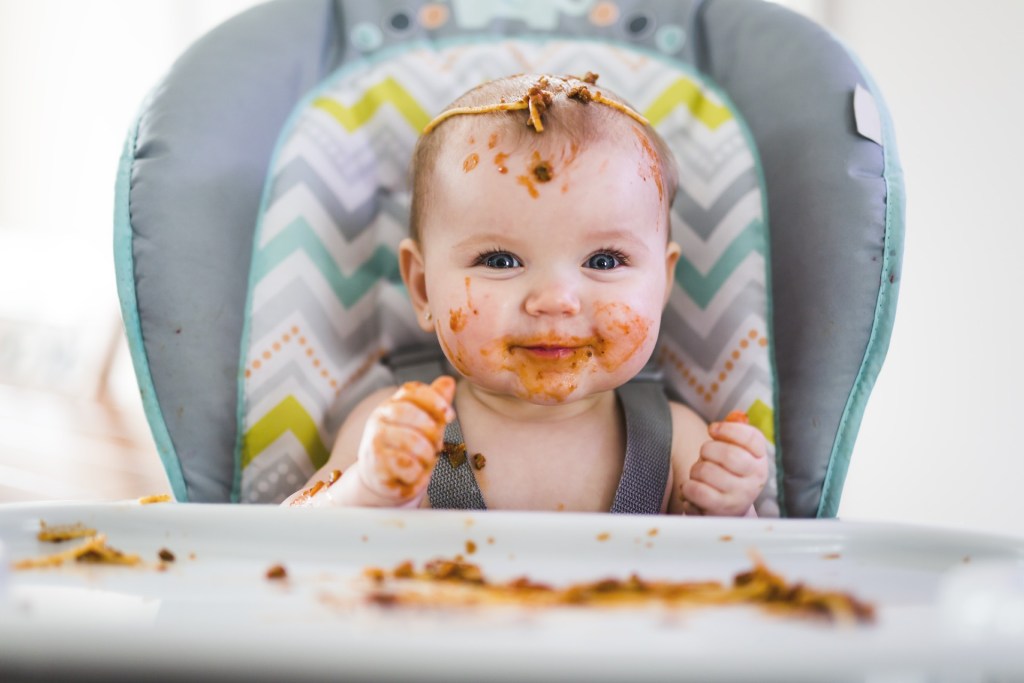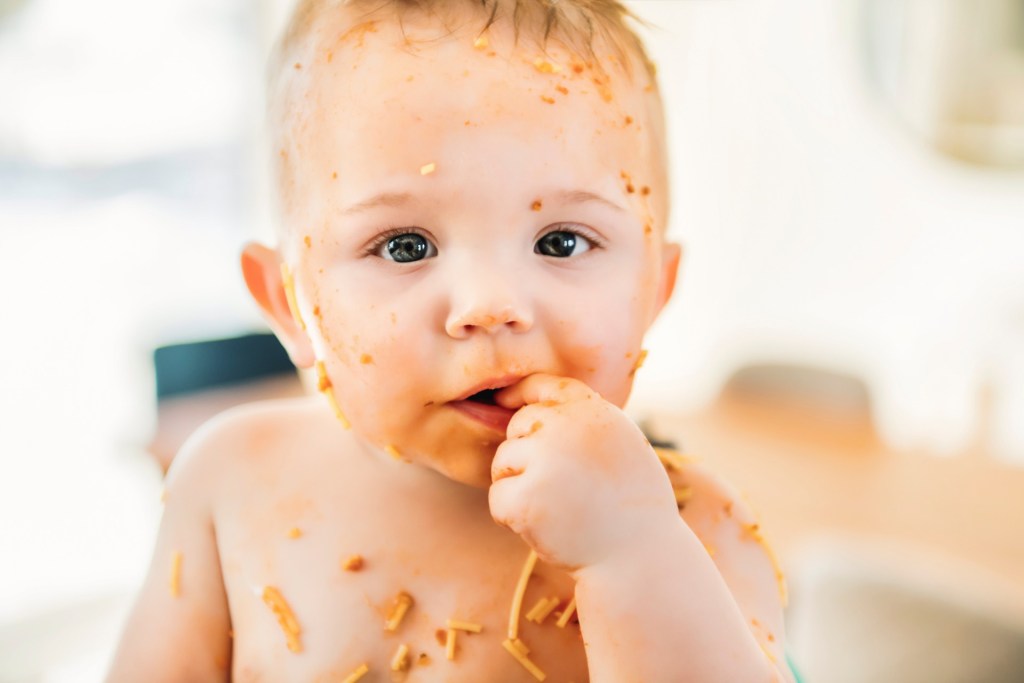Sitting down to a comforting, cozy, and warm plate of warm pasta sounds just divine, doesn’t it? New parents, however, might be wondering when they can safely include their babies in on the deliciousness that is al dente pasta coated in a tasty sauce or velvety butter. If you’re a first-time mom asking the question of, “When can babies eat pasta?”, we’re here to help.

Why question pasta in the first place?
You may be wondering why there is a concern over giving pasta to your baby at the correct time, and why some parents feel the need to be cautious about the process. While there are several factors to consider initially, the primary concern over serving pasta to a baby is the introduction of two bigtime allergens into your baby’s diet: wheat and eggs. Gluten allergies such as Celiac Disease are very real issues that parents can face, should their child turn out to possess an allergy to wheat. An egg allergy is also a devastating thing, which could be triggered by feeding your infant pasta before establishing allergies first.
The American Academy of Allergy & Immunology suggests introducing single-ingredient infant first, such as apples, pears and bananas, green vegetables, sweet potatoes, squash and carrots, and cereal grains one at a time. – American Academy of PediatricsIn addition to allergy-related concerns, there are also safety concerns surrounding feeding babies’ new foods. It is vital that parents remain aware of the size of foods they are presenting to their children. Babies can choke easily, and without proper education, successful emergency interventions are not always possible. If once allergies have been determined to not be present, parents wish to proceed in serving their baby pasta for the first time, it’s highly recommended to use short pasta initially. Examples include:
- Elbow Macaroni
- Penne Lisce (smaller version of penne rigate)
- Farfalle
- Fusilli

When can babies eat pasta?
The simple answer? Pediatricians and the American Academy of Pediatrics recommend babies begin to try solid foods between the ages of 4 ½ months and 6 ½ months. When infants are young, 4 months and younger, their bodies possess a mechanism to prevent anything other than liquid to be swallowed. This is called the “extrusion reflex”, or tongue-thrust reflex. Keep in mind, however, that this is a primal instinct, not your little one being defiant.
Once your infant has reached the appropriate age to begin the process, solid foods can be introduced. This is typically done one ingredient at a time. For instance, fruits are served in small pieces, and cereals are attempted one at a time. Once a wheat and egg allergy has not been discovered after presentation, pasta can be introduced safely. When serving to your little one a dish of pasta for the first time, a light coating in unsalted butter provides a nice “sauce” of sorts. Keeping a baby food journal can be helpful to keep track of when you can safely introduce foods, without becoming confused or forgetting any vital information.
But don’t forget…
As a parent, it’s paramount to remember that even though your baby may begin to try and eat solid foods, those foods cannot become their entire daily diet. Infants will still require formula or breastmilk to meet their nutritional needs on a regular basis. Once solid foods become a regular part of their diets, parents can slowly begin removing feeding times for formula or nursing, usually around the age of 12 months.
We get it. You’re excited to introduce your little one to all the new and tasty treats you and your family enjoy daily. They respond to seeing you eat, the colors of the foods, and maybe even the smells associated with them. You want to include them in your meal, as eating together brings families closer and forms a more close-knit bond. You also want to broaden their palates with new, soft, and baby-friendly foods with easy to eat and digestible textures and ingredients. Don’t let that cloud the importance of doing this in the right time frame, however. By following the recommendations and suggestions of your baby’s pediatrician, you’re ensuring your baby is given new foods safely and in a carefully planned and developed setting. By showing your baby the world of new and exciting foods, you are opening the world up to them with daily adventures in the kitchen.



